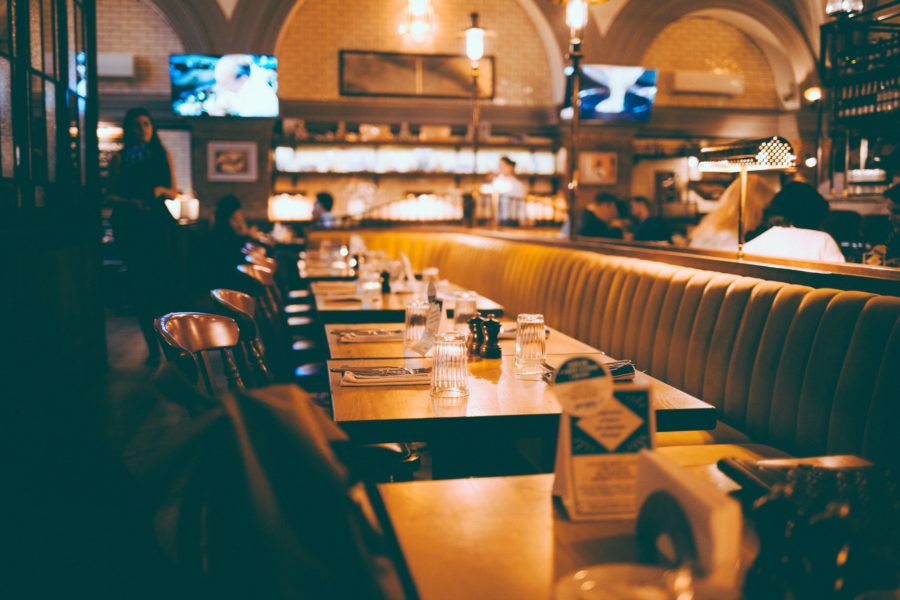
The Fat Man arrived at the Italian restaurant on the Upper East Side of Manhattan with a flashy blonde on his arm. His late-model Lincoln Continental was double-parked out front.
After easing his 350 pounds into a seat at a table near the fire door exit, he ordered extensively from the menu: a Caesar salad, double shrimp cocktail, veal rollatini and rigatoni with bacon, onions and tomato, followed by bananas and strawberries flambé.
He never got to finish his dessert.
About two hours after being seated at Ristorante Bravo Sergio on the night of August 8, 1987, Irwin “The Fat Man” Schiff took two bullets to the back of the head. The shooter entered through the fire door and left the same way.
Police and the FBI were called to the scene and began questioning restaurant employees. They had seen nothing. None of Schiff’s fellow dinners in the small, 12-table restaurant were of any help, according to an FBI memo which noted that “subsequent to the … homicide, all restaurant patrons fled without paying their bills.”
Two years later, one of the top mob figures in New Jersey, Louis “Bobby” Manna, was convicted of ordering the hit on The Fat Man. Now, after serving more than 30 years of an 80-year sentence, Manna and a co-defendant, convicted shooter Richard DeSciscio, want out. In motions filed in federal court in Newark, lawyers for both men claim the prosecution played fast and loose with the rules in order to win a conviction “at any cost.”
The legal arguments are built around defense allegations that the government failed to turn over evidence prior to trial that could have undermined the prosecution’s theory of the case. The key issue appears to be a secretly recorded conversation in a Hoboken restaurant three days before the murder where, authorities said, the Schiff hit was discussed.
Martin “Motts” Casella, who owned the restaurant, was identified as one of the voices on the tape. Casella was convicted with Manna and DeSciscio, but died in prison in 1992.
Defense attorneys argue that Casella couldn’t have been part of the conversation because an FBI surveillance video that was not disclosed at trial showed him leaving the restaurant before the conversation took place.
More to the point, the defense argues that the conversation did not involve Manna, but rather two other men who weren’t talking about “Irwin Schiff” but rather about “weekend union shifts.”
The defense contends the government created “a fictional version of this conversation” as part of its “malicious win at any cost agenda.”
Manna was a major figure in the Genovese crime family in New Jersey at the time. He was mob boss Vincent Gigante’s consigliere and headed up the family’s operations in the Garden State.
The case also included allegations that Manna plotted the murders of Gambino crime family boss John Gotti and Gotti’s brother Gene. Those hits were never carried out but were believed to be part of a move by Gigante and other mob leaders to avenge the Gotti-orchestrated murder of Gambino boss Paul Castellano in 1985. That hit, outside of Sparks Steakhouse in midtown Manhattan, was part of Gotti’s hostile takeover of the Gambino organization.
The prosecution and conviction of Bobby Manna was one of the seminal events in law enforcement’s war on organized crime. The government used two of the newest weapons in its judicial arsenal to nail the shrewd and ruthless Mafioso. High tech electronic surveillance and RICO, the Racketeering Influenced Corrupt Organizations Act, were the cornerstones of the case just as they had been three years earlier in the famous Mafia Commission trial and as they would be four years later in the conviction of John Gotti.
“We have a hope of making organized crime a historic relic rather than something that preys on people in the community year in and year out,” then-Assistant U.S. Attorney Michael Chertoff said after winning the Manna conviction.
Whether Irwin Schiff was preyed upon or was one of the predators is one of the intriguing questions that has never been answered.
To some, The Fat Man was a lovable rogue right out of a Damon Runyon short story, a happy-go-lucky bon vivant who spread around money and cheer wherever he went, always a smile on his face and a beautiful woman on his arm.
Cash never seemed to be an issue for Schiff…and that was the rub. No one was able to clearly establish the source of his wealth. A story in the New York Times a few days after the hit focused on exactly that. Written by Ralph Blumenthal, one of the best reporters working in New York back then, and with a headline that read “The Enigmatic Life and Violent Death of Irwin Schiff,” the piece focused on the “contradictory picture” of the victim.
The story described Schiff as “a lavish spender who called himself a financial consultant, lived in a $13,000-a-month East Side duplex penthouse, drove a $185,000 antique Stutz Bearcat and half-million-dollar `cigarette’ speedboat, gambled away hundreds of thousands of dollars in Atlantic City, claimed ownership of hotels and casinos and clubs, and once listed his net worth as $20 million—all with no traceable sources of income or assets.”
While some friends compared him to a lovable teddy bear and said he was always ready to help anyone in need, others speculated that Schiff moved along the edges of an underworld that was more Goodfellas than Guys and Dolls.
There was talk that the convicted con-man was laundering money for the mob and that he had begun to take a bigger piece than he was entitled to. There was also some speculation that he had begun cooperating with the feds.
Either could have led to an underworld death sentence in the turbulent 1980s.
More than 30 years later, we still don’t have the answer.
Bobby Manna, of course, says the feds got it all wrong.
What’s more, he says they knew it.
“The Government fraudulently purported … that the August 5 … conversation was related to the murder of Irwin Schiff, when in fact they knew it was not, only to inflame both the Court and the jury’s perception of Manna and his codefendants,” the motion filed by Manna’s lawyer reads. “Supporting evidence clearly establishes that neither Manna nor Casella were engaged in the … conversation.”
The appeal filed in April came after Manna’s request for compassionate leave, based on the Covid outbreak and his medical condition, was turned down in December. Now 91 and suffering from several serious medical ailments, the one-time underworld kingpin is asking the court to overturn his conviction and allow him to, in effect, go home and live out whatever is left of his life surrounded by family and friends.
It’s a decent and humane request.
The Fat Man might have wanted something similar.
But it wasn’t on the menu that night.

